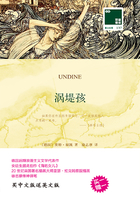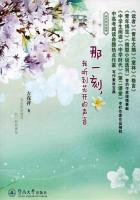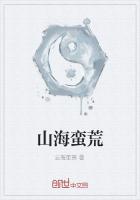One day during a tour of East Asia, I spoke to more than three hundred top business executives and entrepreneurs in Singapore. After I finished my presentation and as the hall was clearing, a dignified gentleman came rushing toward me. He looked as successful and self-assured as the rest of the distinguished audience, so his first words on reaching me were surprising.
“Nick, help me,” he pleaded.
As I came to learn, this accomplished man owned three banks, but he had humbly come to me for help because material wealth offered no protection from the anguish he was going through.
“I have a wonderful daughter who is fourteen, and for some horrible reason every time she looks in the mirror she says she feels ugly,” he said. “It‘s breaking my heart that she can’t see that she is truly beautiful. How can I make her see what I see?”
It‘s easy to understand the man’s distress, since the most difficult thing for parents to endure is their children suffering. He was trying to help her get through this self-hatred, which was so important, because if we can‘t accept ourselves when we are young and healthy, how will we feel when we age and experience the medical problems that come with advancing years? And if we hate ourselves for some random reason, it’s quite easy to wind up replacing it with hundreds of other arbitrary and equally invalid ones. Youthful insecurities can send you plunging in a downward spiral if you allow yourself to focus on your flaws instead of your strengths.
The Bible tells us that we are “fearfully and wonderfully made.” Why, then, is it so difficult for us to love ourselves just as we are? Why do we so often become burdened with feelings that we are not beautiful enough, not tall enough, not thin enough, not good enough? I‘m sure this Singapore father lavished his daughter with love and praise, trying to build her confidence and esteem. Our parents and loved ones can wear themselves out trying to build us up, yet it only takes one mean remark from a classmate or nasty comment from a boss or co-worker to undo their efforts.
We become vulnerable and fall into the victim’s mentality when we base how we feel about ourselves on other people‘s opinions or compare ourselves with others. When you are unwilling to accept yourself, you are less willing to accept others, and that can lead to loneliness and isolation. One day I was speaking to a group of teens about how the desire to be popular often leads people to shun the less attractive or athletic kids in school. To make my point, I asked a straightforward question: “How many of you would like to be my friend?”
To my relief, most of the people in the room raised their hands.
But then I asked a question that threw them off: “So it doesn’t matter how I look, right?”
I let it sink in for a few minutes. We‘d just been talking about how kids spend so much time trying to fit in by wearing just the right clothes, having a cool haircut, and being not too heavy, not too thin, not too tan or too white.
“How can you want to be friends with a guy with no arms and no legs—the most different guy you’ll probably ever meet—but then reject classmates because they don‘t have the right jeans, or a clear complexion, or a body suited for the fashion runway?”
When you judge yourself harshly or put intense pressure on yourself, you become judgmental of others. Loving and accepting yourself as God loves you opens the door to a much greater sense of peace and fulfillment.
The pressures that teens and young adults feel seem to be universal. I’ve been invited to address young people in both China and South Korea because of concerns about high levels of depression and suicide in those rapidly developing, hard-working nations.
I arrived in South Korea just as the 2010 Winter Olympic Games were getting under way in Vancouver. It was fun to see the national pride and enthusiasm of people everywhere in Seoul when Kim Yu-Na, South Korea‘s “queen” of figure skating, captured her country’s first Olympic figure-skating gold medal. Interest was so high in her quest that during her final performance trade on the country‘s stock market fell to half its normal level.
I had been featured in a documentary that was seen widely throughout South Korea’s large Christian population, which led to several invitations to speak. The explosion of faith there is amazing. My hosts at the Onnuri Church told me that South Korean Christians are passionate for missionary work. They predicted that within a decade or two South Korean missionaries would outnumber North American missionaries, which is remarkable given that South Korea is so much smaller.
As we drove into Seoul, I was struck by the number of churches. The capital city is said to have the three largest Christian churches in the world. Although just one hundred years ago Christians in South Korea were few, nearly a third of its 48 million people now call themselves Christians. One of the churches I spoke at, the Yoido Full Gospel Church, has more than 800,000 members who attend services at twenty-one churches.
Friends of mine visit South Korea just to tour the churches. The prayer meetings are incredible with out-loud praying and the ringing of bells to signal each new program. Yet even with this strong spiritual growth, the people have high levels of stress because of the strain of long hours at work. The pressure in the schools is also intense because of fierce competition to be the best. Many young people are stressed by the feeling that first place is the only worthy place. If they don‘t get the top position, they feel they’ve lost. I encourage them to know that failing an exam doesn‘t make them failures. We are all of value in God’s eyes, and we should love ourselves as He loves us.
The kind of self-love and self-acceptance I‘m advocating is not about loving yourself in a self-absorbed, conceited way. This form of self-love is self-less. You give more than you take. You offer without being asked. You share when you don’t have much. You find happiness by making others smile. You love yourself because you are not all about yourself. You are happy with who you are because you make others happy to be around you.















